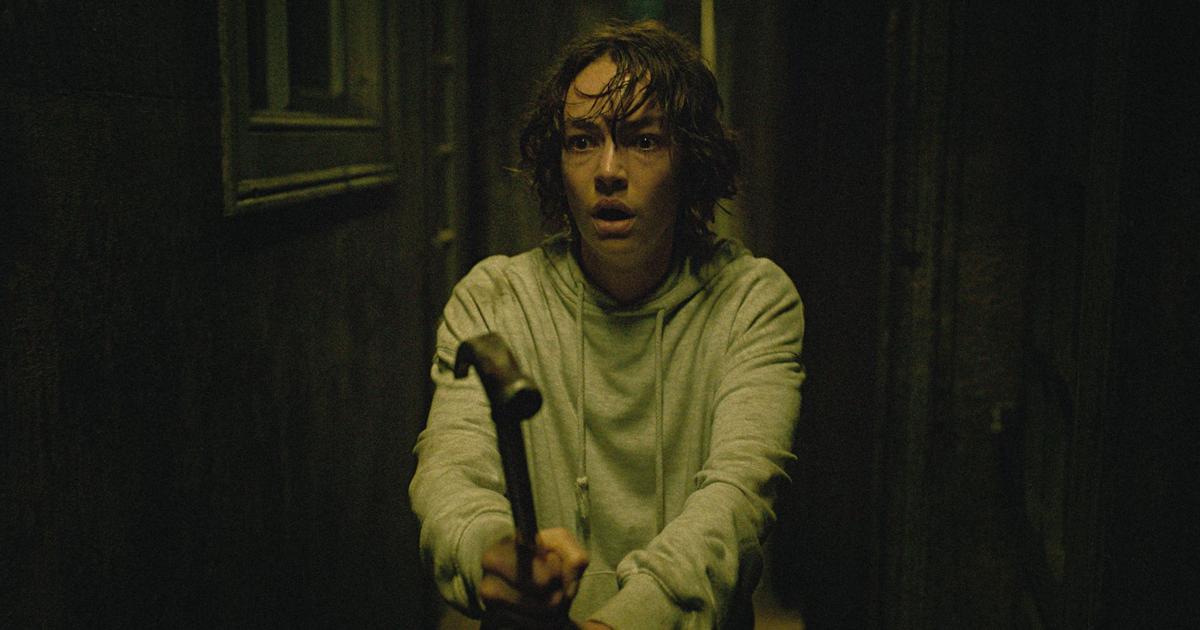For the series the archetypes are the foundation of much of the creativity, that of Oedipus Re, told by Sophocles in the fourth century BC, still shows all its vitality and animates the streets of this 72nd edition of the Berlinale.
And this at least in two totally different films, both directed by female directors.
In the first, Isabelle Stever's GRAND JETÉ, the Oedipus complex is shown directly while in a more indirect and instrumental form in Sophie Hyde's GOOD LUCK TO YOU, LEO GRANDE.
The latter with an extraordinary Emma Thompson who shows herself naked in front of a mirror at 62.
Meanwhile, the GRAND JETÉ, the sixth feature film by Isabelle Stever, premiered in the Panorama section.
Sarah Nevada Grether (American actress, dancer and choreographer living in Berlin) is Nadja,
a woman who has separated from her son Mario (Emil von Schönfels), entrusting him for many years to his mother, in order to concentrate on her career as a dancer.
When she meets him again, after a long time, she develops an affection for him that has little of her maternal love.
In short, the film goes beyond all taboo, putting in the end only a mother and a son who gradually get closer physically.
The screenplay is by Anna Melikova and is inspired by the novel 'Fürsorge' by Anke Stelling.
"It was a great challenge to adapt the novel to the film - explains the director -. It took me ten years to find the right person to write the screenplay which I then entrusted to Anna Melikova. Mario in the film - she adds - is like a mirror and also what Nadja is looking for.
The mother and child labels at some point in history have no meaning for them.
However, I don't think - says Stever - that the film wants to excuse or justify Nadja's behavior, but on the contrary only create a space to look at this relationship in a non-judgmental way. "GOOD LUCK TO YOU, Hyde's LEO GRANDE, already at Sundance , she always compares a woman who is no longer young and a boy, but for completely different reasons, one could say pragmatic. She is a widow who has known in her life only a minimalist sex life: the position of the missionary. orgasm and no sexual practice even the slightest bit extravagant.Now that time is upon him he wants to try everything and do it right away.
So Nancy (Thompson) hires paid sex professional named Leo Grande (Daryl McCormack) for some sexual encounters.
For them a hotel room, with a rich minibar, and a lot of embarrassment.
Nancy, who comes up with a sexual list of things she wants to try, is by no means capable of putting them into practice.
Between the two such long conversations waiting to be ready.
In short, they make friends, even if no one can swear that they really tell each other the truth, and they laugh a lot.
Between them long dialogues, dense dense, and also too perfect and cute.
That more than a hint of maternity is triggered in her towards Leo can be understood from the smiles and from some maternal questions such as when she asks him if by chance he is a victim of human trafficking.
Chatting with her sex worker in the end does not make the woman miss the long-awaited orgasm, one of the most beautiful seen on the big screen.
But Mary's attained pleasure doesn't change things in the end.
This is perhaps what her last scene suggests: that of Mary naked in front of the mirror with a body that is now too much in disarmament.









